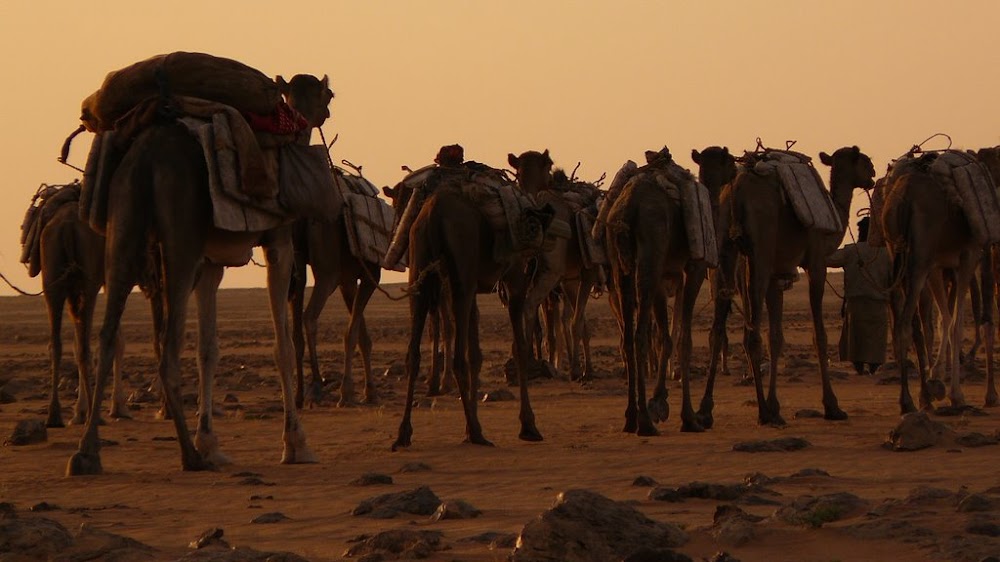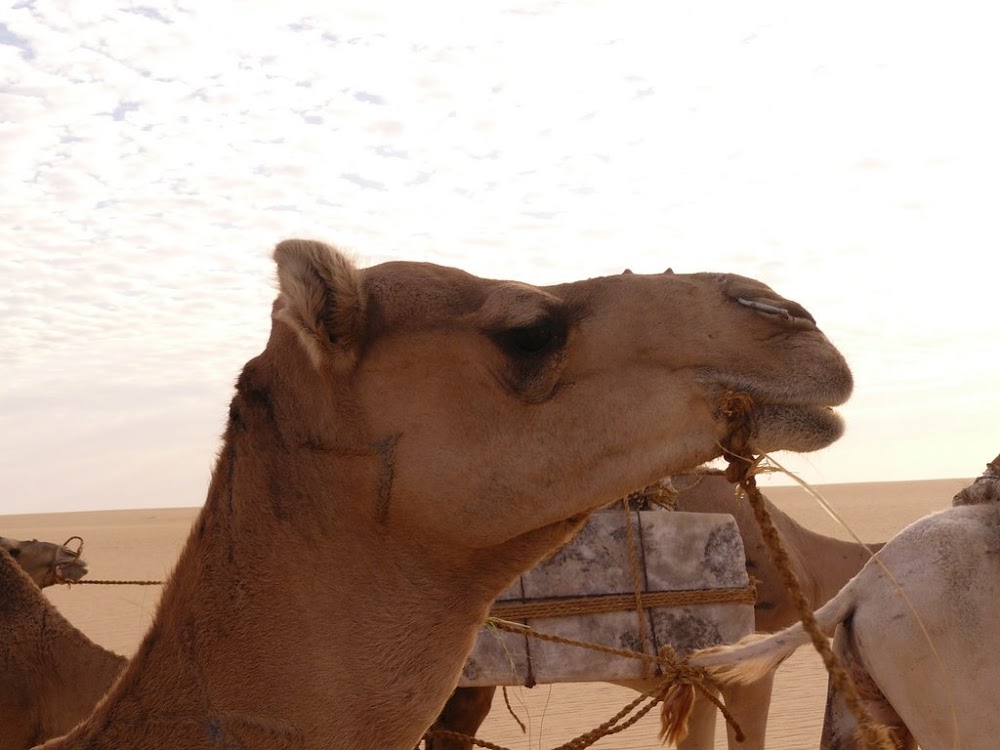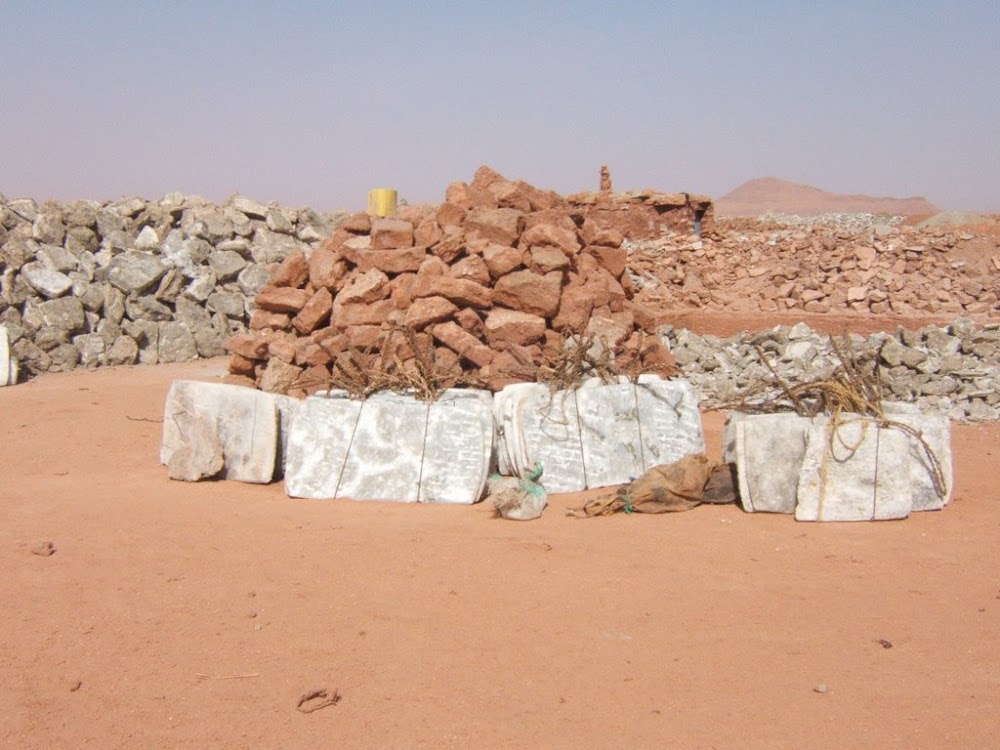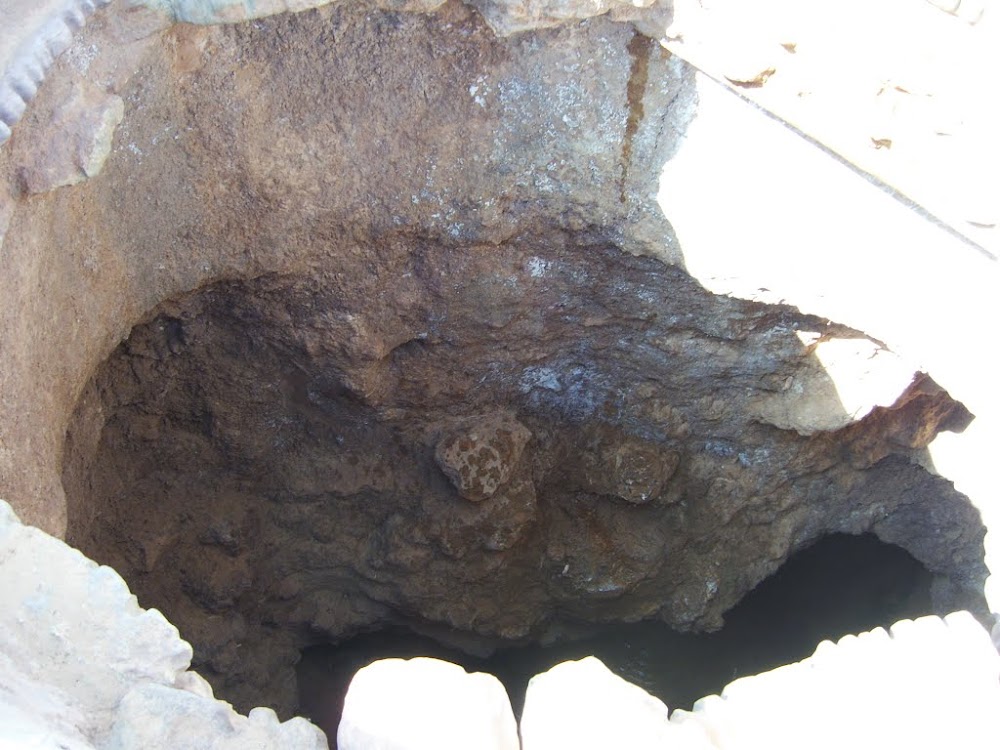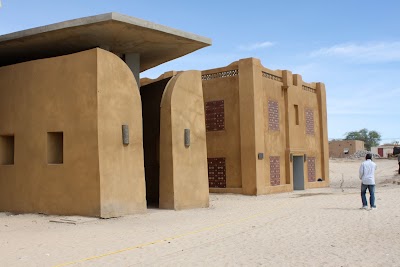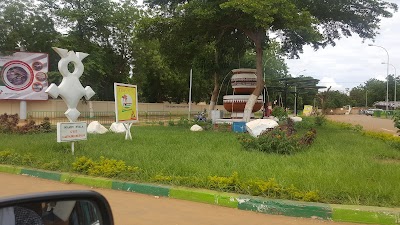Taoudenni Salt Mines (Mines de Sel de Taoudenni)
Overview
The **Taoudenni Salt Mines** are nestled in the remote Taoudénit Region of **Mali**, a place steeped in history and tradition. Renowned for centuries for their salt extraction, these mines are not only vital to Mali's economy but also reveal the challenging conditions miners endure daily.
Discovered in the **10th century**, the Taoudenni Salt Mines have served as a crucial source of salt for **West Africa**. Often referred to as "white gold," salt was once as precious as gold itself, playing a pivotal role in seasoning and preserving food, as well as serving as a trade commodity and medium of exchange.
Located in the **Saharan** part of Mali, the mines exist in an incredibly arid and hostile environment. Miners utilize simple hand tools, such as pickaxes and shovels, to extract salt. Their process begins with digging rectangular pits that can reach several meters deep, where they laboriously break apart salt slabs from the ancient seabed.
Once harvested, the salt slabs are shaped into rectangular pieces known as **tiles**, weighing between 25 and 30 kilograms. These tiles are then transported by **camel caravans** to markets throughout Mali and neighboring countries. The journey through the scorching desert can take days or even weeks, fraught with challenges such as extreme heat, sandstorms, and the ever-present risk of dehydration.
The salt mines are located about **700 kilometers north of Timbuktu**, rendering them extremely isolated. The journey to the mines is nearly as daunting as the work itself. Miners face severe hardships, including basic living conditions, scarce water, and limited medical supplies. Yet, the tradition of salt extraction persists, handed down through generations, showcasing the resilience of these communities.
While modern advancements have transformed many aspects of life globally, the **Taoudenni Salt Mines** remain largely unchanged. This preservation is due in part to the rugged environment that resists modern infrastructure and the commitment to traditional extraction techniques. Although some motorized vehicles have started to replace camels for transporting salt, much of the labor is still performed manually, reflecting a deep connection to their heritage.
The salt harvested from Taoudenni is prized for its natural purity and mineral content. It serves as an essential ingredient for communities lacking modern storage and preservation methods. Beyond its practical uses, the salt holds cultural significance, playing a role in traditional ceremonies and local cuisine.
However, the realities of working in the mines are harsh. Miners live in makeshift camps with minimal amenities, enduring temperatures that can soar up to **50 degrees Celsius (122 degrees Fahrenheit)** during the day. Health risks abound, including respiratory issues from inhaling salt dust and physical injuries from handling heavy salt tiles.
Despite these challenges, a strong sense of community permeates among the miners. They share resources, look out for one another, and take great pride in their work. The tradition of salt mining in Taoudenni stands as a testament to human resilience and the capacity to thrive in the face of adversity.
In recent years, efforts have been made to improve the miners' working conditions, with non-governmental organizations stepping in to provide better healthcare and support systems. These initiatives aim to raise awareness about the difficult lives of the Taoudenni miners and foster a more sustainable future for this vital community.
The **Taoudenni Salt Mines** are a living heritage, continuing to operate much as they have for centuries. They symbolize not only a critical economic activity but also a resilient community that perseveres against the odds. The journey of salt tiles from these mines to various markets tells a compelling story of tradition, perseverance, and the unyielding strength of the human spirit.


